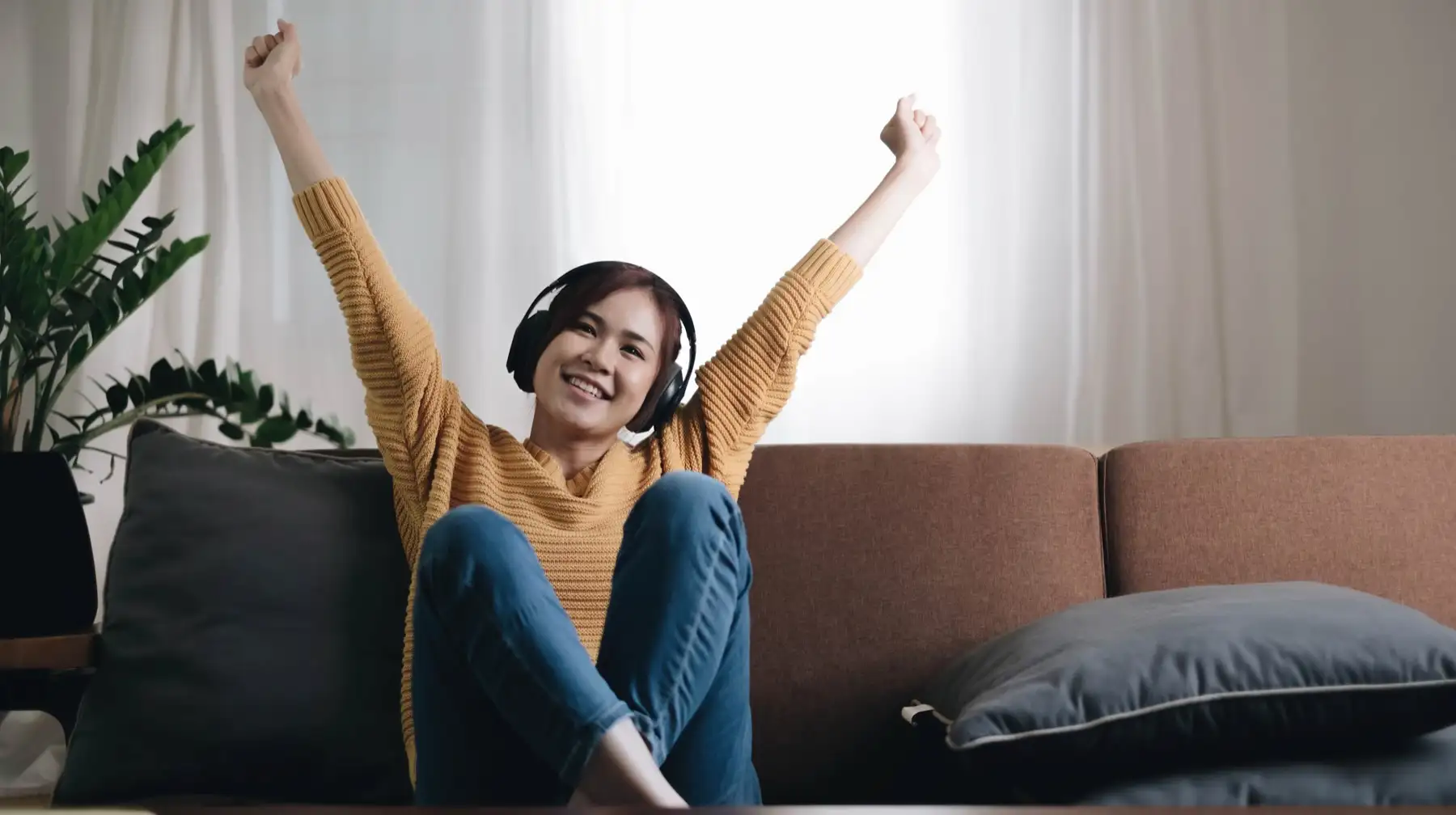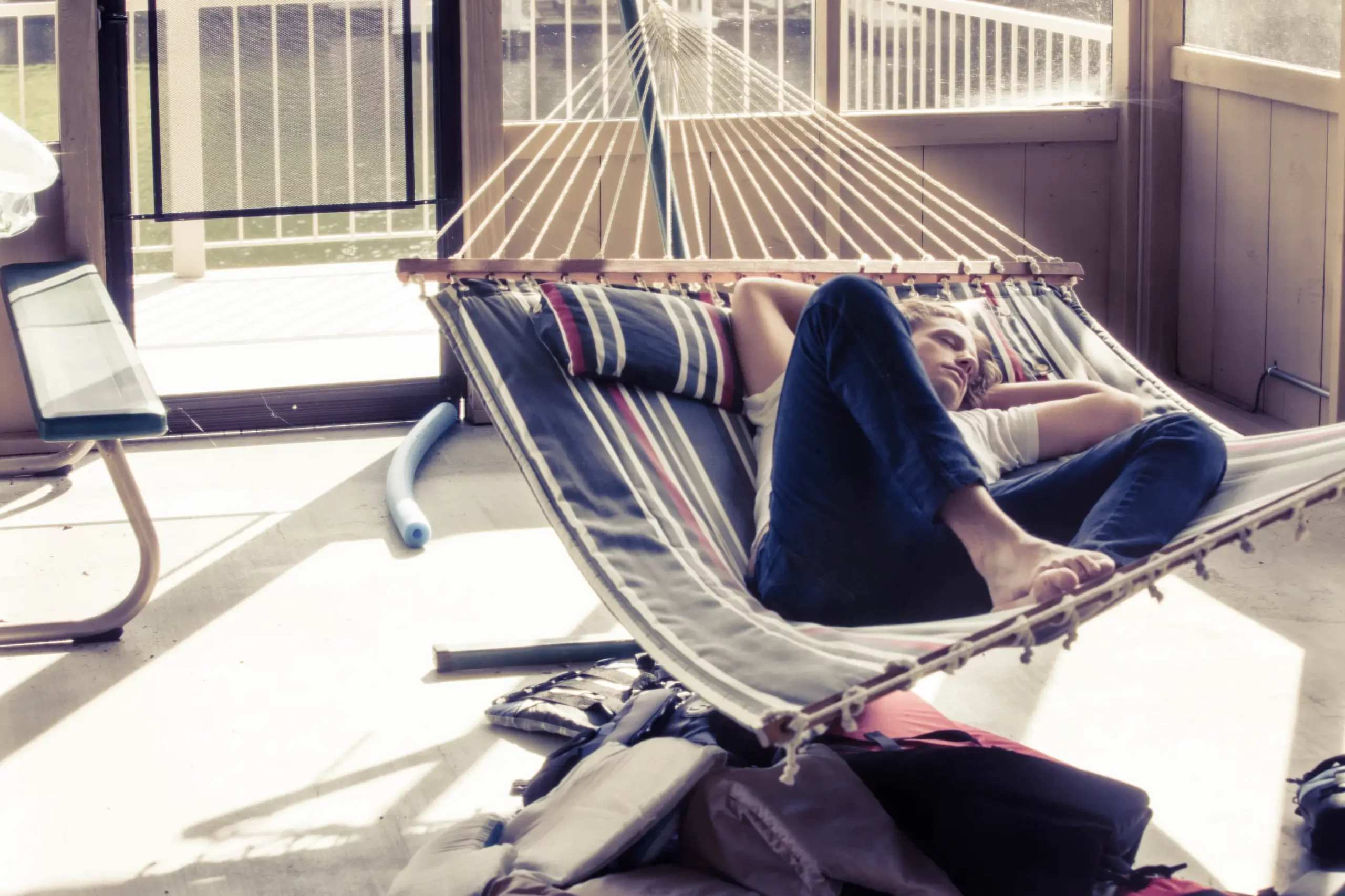In our modern age, with life’s demands and constant stimulation, it’s unrealistic for most of us to get right into bed and fall into a restful sleep. We need to make an effort and a plan, just like everything else. So it’s just as important to prioritize sleep as nutrition, exercise, work, or career. After all, sleep impacts all those things.
- Allow a 90-minute window before getting into bed to wind down. Shut off electronics, avoid stress, and connect with others by talking, journaling, or reading an actual book. Avoid the blue light from electronics or TV just before bed, as it fools the brain into thinking it’s still daytime.
- Account for what is known as sleep latency, the 15-30 minutes in bed it takes to fall into sleep. If you are someone who falls asleep exceptionally quickly, then it is likely that you don’t sleep enough and have an ongoing sleep deficit.
- If you have trouble falling asleep, don’t lie awake in bed. If you are awake in bed for more than 20 minutes or feeling anxious or worried, get up and do some relaxing activity like reading, listening to soft music, meditating, etc., until you feel sleepy. The anxiety of not falling asleep can make it harder to fall asleep. When I feel anxious, I like to do what I call a “mind dump.” Grab some paper and a pen (not a computer or tablet because the blue light will fool your brain into thinking it’s daylight) and write down every thought that comes up for you. Write without stopping or picking up your hand. No editing or censoring! Just get it all out on paper. Then get back into bed, knowing you can look over your notes in the morning if desired.
Shooting for the ideal 8 hours would look like this example:
- 90 min wind down: 9pm-1030pm
- 30 min sleep latency window: 1030pm-11pm
- 8-hr sleep window: 11pm-7am
- Allow a 60 min re-entry in the morning: from 7 am-8 am with natural light exposure and without focusing on productivity. It’s a good time to journal, connect, inspire, imagine, create, move outside, and avoid technology.
“A well-spent day brings happy sleep.” – Leonardo DaVinci
How can I enhance my sleep? Consistency. The most important rule is to stick to a sleep schedule. Go to sleep and wake up at the same time each day and set the alarm for bedtime, not wake time. Then…
- Turn down the lights. Ensure the room is dark, or use a sleep mask. Remove exposure to all screens as far in advance as possible before bed but ideally, 1-2 hours or more before laying down to initiate sleep. Remove all devices from the bedroom. TVs, cell phones, or computers in the bedroom can be a distraction and deprive you of much-needed sleep.
- Purge your bedroom of any additional things that might distract from sleep, such as noises, lights, pets, uncomfortable sheets, warm temperatures, etc., and only use the bed for sleeping and intimacy. Engage in all other activities somewhere else.
- Don’t overschedule your day so there’s no time left for unwinding. If you are anxious from the day and unable to regulate and calm yourself before bed, your brain will struggle to sleep as it believes it is under threat (like trying to sleep well when a tiger is in the room). The lack of sleep that results will perpetuate the fight-or-flight, or survival, state.
- Do not partake in stressful activities before bed, such as checking work email, watching violent movies, reading violent or exciting stories, or arguments with family.
Set up your sleep environment for success. Ensure you are sleeping in a quiet room free from distraction and or use ear plugs. Turn down the temperature to avoid heat; people sleep better in rooms that are cooler. Make sure the bed, pillows, sheets, and blanket are comfortable. Consider changing them if they are not making your bed comfy. Some people sleep better with a weighted blanket. Turn the clock face out so you don’t see the numbers, which can cause anxiety when falling asleep.
- Try showering an hour or two before bed to see if that helps (for some people, it can be too stimulating, whereas others find it very helpful). Or take a hot bath before bed which can help you relax and slow down, making you more ready for sleep. The drop in body temperature after getting out of the tub or shower may also help you feel sleepy.
- Avoid caffeine and nicotine (both are stimulants). Coffee, sodas, teas, and chocolate are all culprits in causing insomnia. Coffee has a half-life of 12 hours, so it’s best to avoid drinking it after your morning cup. And nicotine causes smokers to sleep too lightly and wake up too early because of nicotine withdrawal.
- Avoid alcohol before bed as it impairs REM sleep and keeps you in the lighter stages of sleep, leaving you feeling tired in the morning. If you are using alcohol to help you relax before bed, remember that you will likely wake up in the middle of the night when the alcohol wears off.
- Check your drugs with your pharmacist to see if any could impact your sleep. Adjusting necessary meds to a morning time ingestion could be helpful.
- Avoid napping after 3 pm. Naps can help sleep deficits, but late afternoon naps make it harder to fall asleep at night.
- Last but not least, keep it consistent. Sleeping later on weekends won’t make up for the sleep deficit during the week, AND it makes it harder to wake up on Monday.
There are so many factors in our lives that impact sleep. Nutrition, activity, and connection are just a few of those things. Often we need support in identifying what those factors could be. At WeHeal our team aims to help you optimize all facets of life, supporting you to achieve the healthiest and most joyful YOU.




